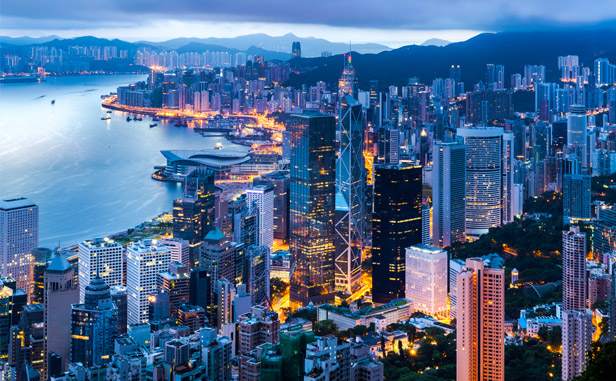News July 13, 2021
Biden to Warn US Businesses About Hong Kong, Xinjiang
The president will highlight threats to U.S. business with connections to those regions in China.
It’s getting riskier to do business in Hong Kong.
That’s the message President Joe Biden is expected to express to American companies the week of July 11, according to reports from The Financial Times and Reuters.
It’s a warning with relevance for the North American promotional products industry and companies with offices or business partners in Hong Kong, particularly as it pertains to sourcing from China-based factories.

View of Hong Kong city at twilight.
According to The Financial Times, the Biden administration believes U.S companies operating in Hong Kong are up against threats that include the government of China’s ability to gain access to data that those businesses – and other foreign firms – store in the special administrative region.
The dangers also reportedly include a new law that allows Beijing to slap sanctions on individuals and organizations that implement what the Chinese government determines to be discriminatory measures against Chinese citizens or entities.
Biden is ramping up pressure on China on several fronts, including plans to have stronger oversight of U.S. corporations that do business in the region. https://t.co/XWe8oEiVxV
— Lisa Abramowicz (@lisaabramowicz1) July 13, 2021
Chinese government officials have panned the warning, calling it “typical political manipulation and double standards” by Washington, as Chinese foreign ministry spokesman Zhao Lijian put it in a press briefing in Beijing on July 13, according to Reuters. China has been cracking down on pro-democracy movement in Hong Kong.
Meanwhile, Biden could also update warnings about having business connections to Xinjiang, a region in northwest China where Beijing is, according to some human rights experts and national governments, waging a campaign of repression, forced labor and potentially genocide against primarily Muslim ethnic minority groups that include Uyghurs. Chinese officials deny any wrongdoing.
Biden’s message on Xinjiang is expected to be that companies will face legal backlash here at home – including potential seizure of imported products – unless they can demonstrate unequivocally that their supply chains do not in any way use forced labor from Xinjiang.
Xinjiang produces about 20% of the world’s cotton. Earlier this year, the U.S. banned cotton from Xinjiang over forced labor concerns. Certain leading suppliers in the promotional products industry told ASI Media that they’ve evaluated their supply chains to ensure there’s no connection to forced labor in Xinjiang or elsewhere.
Any supplier – or distributor that imports directly from abroad – that hasn’t already scrubbed its supply chain of links to Xinjiang would be wise to do so. Still, that’s easier said than done, as international sourcing experts note that supply chains can get opaque and it can be difficult to say with true certainty that a company’s production network isn’t tainted by forced labor. One smart step, however, is to cut off any direct connection with manufacturers or other potential partners in Xinjiang.
